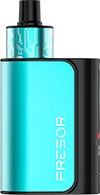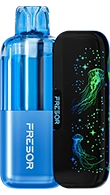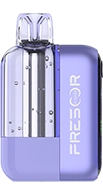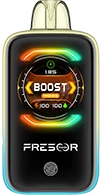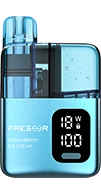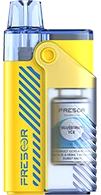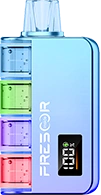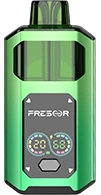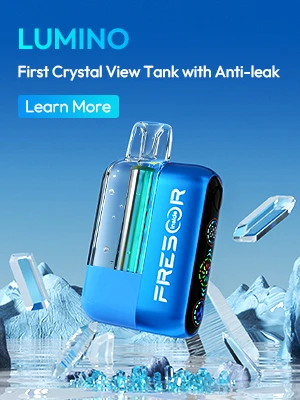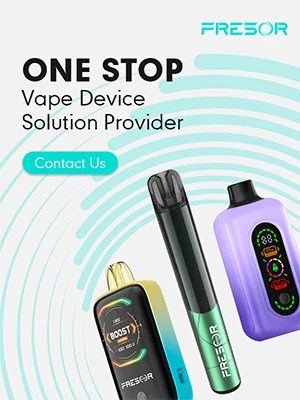Can You Vape in a Hotel Room? A Guide for Travelers, Vapers, and Hoteliers

19 September 2024
In recent years, vaping has surged in popularity, captivating an audience that ranges from young adults to seasoned travelers seeking a safer alternative to smoking. However, as vaping becomes more mainstream, questions about its place in shared public spaces—especially hotel rooms—have emerged. For travelers, hotel owners, and vapers, understanding the boundaries and expectations around vaping can ensure smoother stays without misunderstandings. This blog will explore the nuances of vaping in hotels, offering insights and best practices for all parties involved. Read on to learn about hotel policies, best practices for vapers, and the evolving future of vaping in hospitality settings.
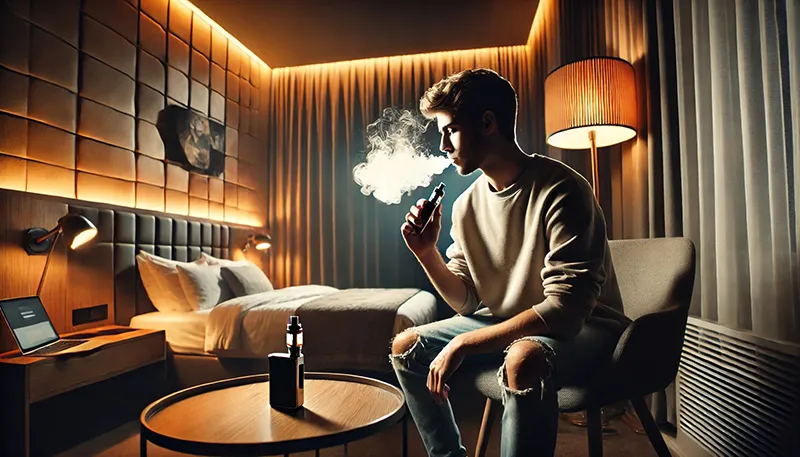
Can You Vape in a Hotel Room?
The Difference Between Vaping and Smoking
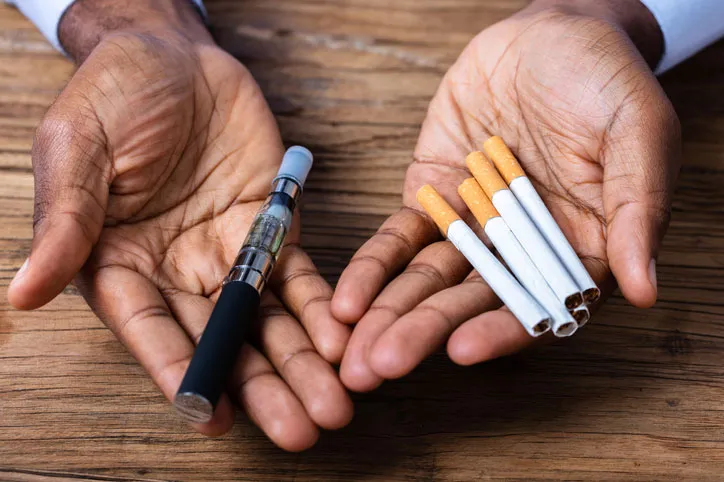
Before diving into the specifics of vaping in hotel rooms, it's important to understand the key differences between vaping and smoking. While both activities involve inhaling and exhaling substances, they each have distinct characteristics that set them apart. . Smoking traditional cigarettes involves burning tobacco or other plant materials, producing smoke that contains a myriad of harmful chemicals and toxins that can pose serious health risks, not only to the smoker but also to those exposed to secondhand smoke. This act can lead to numerous health issues, including respiratory diseases and cardiovascular problems.
On the other hand, vaping employs a battery-powered device, often referred to as a vape pen or e-cigarette, to heat a liquid solution that usually contains nicotine, flavorings, and other chemicals into an aerosolized vapor that is inhaled. This method is generally perceived as less harmful than using traditional cigarettes or smoking, as it avoids combustion and the resultant harmful byproducts. However, it is still essential to recognize that vaping is not risk-free and poses its own health concerns, particularly as long-term effects are still being studied. Understanding these differences is crucial, especially when considering the implications of vaping in spaces like hotel rooms, where policies and health regulations may vary significantly.
Vaping and Hotel Policies
Understanding Hotel Policies
Most hotels have policies in place that address smoking and vaping. These rules are crucial, not only for maintaining the comfort and safety of guests but also for protecting hotel property from damage. While traditional smoking bans are widely recognized and enforced, for vaping hotels' policies can vary significantly. Some hotels treat vaping similarly to smoking, prohibiting it in both guest rooms and public areas, while others may allow it in designated smoking zones.
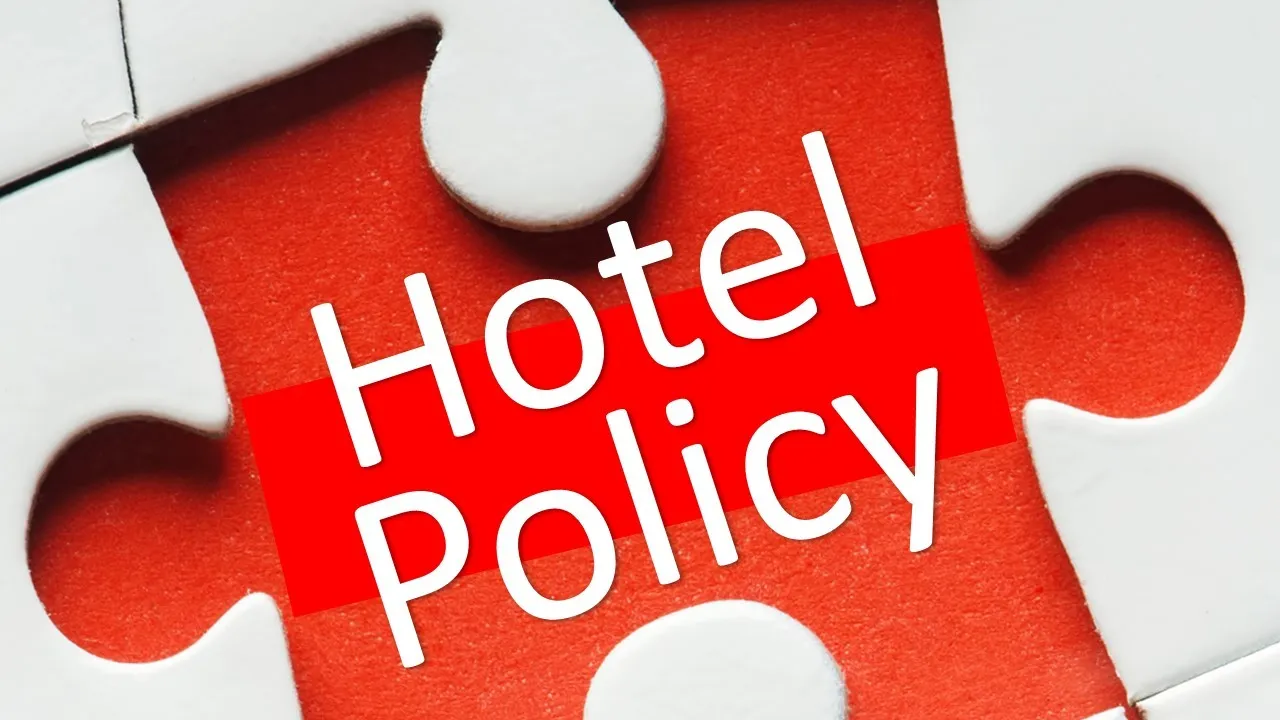
Legal and Health Considerations
The laws surrounding vaping are constantly changing as more research is conducted on its health implications. Even though vaping is often marketed as a safer alternative to smoking, it still involves inhaling substances that could affect indoor air quality. Consequently, many hotels err on the side of caution, implementing policies that align with broader public health guidelines. Additionally, legal restrictions detect vaping may differ by region or country, impacting how hotels formulate their policies.
Impact on Guests and Operations
Vaping can lead to lingering scents and potential residue buildup, both of which can affect the overall guest experience. For hotel owners, maintaining a pleasant environment is paramount, and any odors that disrupt this atmosphere can pose challenges. Cleaning costs and potential customer complaints also play a role in shaping hotel policies regarding vaping. By clearly outlining their expectations, hotels aim to provide an enjoyable stay for all guests, whether they vape or not.
What Happens if you Vape in a Hotel Room?
If a guest is caught vaping in a non-designated area of a hotel, they may face serious consequences, including fines or even eviction from their room. These penalties are not only intended to enforce hotel policies but also to protect the well-being of other guests who may be sensitive to the odors, smoke particles and potential health effects associated with vaping. Many individuals, including children and those with respiratory issues, can experience discomfort from the smells and vapors produced by e-cigarettes.
Moreover, if any damage is caused by vaping in a hotel room, the guest responsible for the act may be charged for cleaning or repairs. This can encompass damages to furniture, carpets, or linens resulting from residue buildup cigarette smoke, burns from vape devices, or other forms of neglect. Hotels often have strict cleaning protocols and may need to take extra measures to restore a room to a clean and safe condition, which can add to the costs incurred by the guest.
In addition, hotels maintain the right to refuse service to guests who violate their vaping policies. This can lead to being asked to leave the hotel premises immediately, and in some cases, guests may find themselves banned from returning in the future. Such policies are in place not only to ensure a pleasant experience for all guests but also to maintain a healthy and welcoming environment throughout the hotel. It’s essential for guests to be aware of and adhere to these rules to avoid any misunderstandings and to enjoy their stay without interruption.
The Science of Smoke Alarms and Vaping in a hotel room
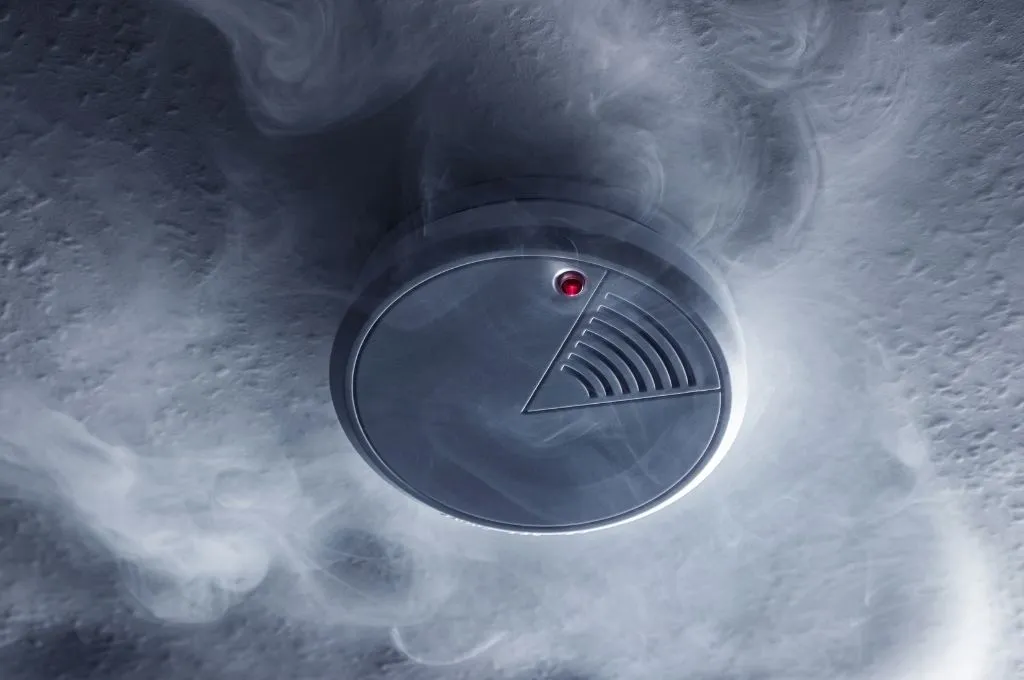
Another reason hotels strictly enforce their vaping policies is due to the potential fire hazards associated with vaping. While most vape devices do not produce actual flames, they can still generate heat and emit smoke-like substances that can trigger smoke alarms. These devices operate by heating e-liquids, which can lead to overheating and, in some rare cases, ignition of nearby flammable materials.
Smoke alarms are essential safety measures in hotels, designed to protect both the guests and the property by providing early warning in case of fire. Any false alarms or disruptions caused by vaping fire alarm can not only lead to unnecessary panic but also put guests at risk, potentially leading to evacuations and a chaotic situation. Moreover, frequent false alarms can burden the hotel staff and emergency services, diverting their attention from real emergencies.
Therefore, it is crucial for hotel policies to prohibit vaping in rooms and designated non-smoking areas to prevent these types of incidents from occurring. Implementing strict no-vaping policies helps ensure a safe and comfortable environment for all guests while maintaining the hotel's reputation for safety and tranquility. By prioritizing these policies, hotels can protect their guests and minimize the risk of fire hazards linked to vaping devices.
Providing Designated Vaping Areas
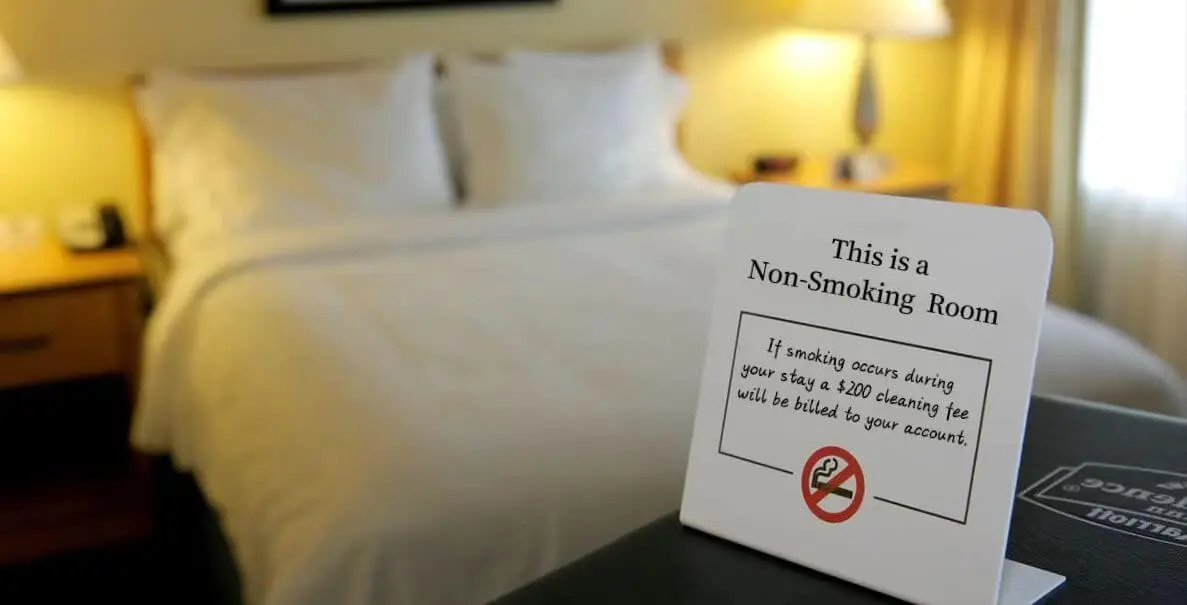
Some hotels have recognized the growing popularity of vaping and have started designating specific areas where guests are allowed to vape without violating hotel policies. These areas may include outdoor patios or balconies, designated smoking rooms, or even specific floors dedicated to vaping.
By providing these designated areas, hotels can cater to the needs of both vaping and non-vaping guests while still maintaining a safe and comfortable environment for all. It also helps prevent any misunderstandings or conflicts between guests regarding vape usage on hotel premises.
Tips On Avoiding Getting Caught Vaping In A Hotel Room
Turning off the alarm: Some vape devices come equipped with the option to disable the smoke detector temporarily, which may seem convenient for users who want to vape without setting off an alarm. However, this practice is highly risky and potentially dangerous, as it compromises the safety of everyone in the vicinity. In the event of an actual fire emergency, guests may not receive the critical warning they need, putting their lives at risk.
Covering the smoke alarm: Another risky method some users employ is covering the smoke alarm to prevent it from detecting vape smoke. This practice is equally dangerous, as it obstructs the smoke alarm's primary function of detecting smoke and can significantly delay the detection of a fire. In situations where every second counts, this could lead to catastrophic consequences.
The shower steam method: Some vapers believe that vaping in the bathroom while running hot water in the shower can help minimize or mask the clouds of vapor produced. While this may reduce the visibility of the vapor temporarily, it is not a reliable method and can still trigger smoke alarms. Moreover, this approach can create an uncomfortable environment due to the humidity, which may not be ideal for enjoyment.
Vaping from the balcony: People may think that vaping from the balcony is a safe and discreet option. However, this practice can still potentially set off smoke alarms if the vapor drifts back into the room through open windows or doors. Additionally, vaping from balconies may violate hotel policies and local laws, resulting in fines or penalties.
Best Practices for Vapers
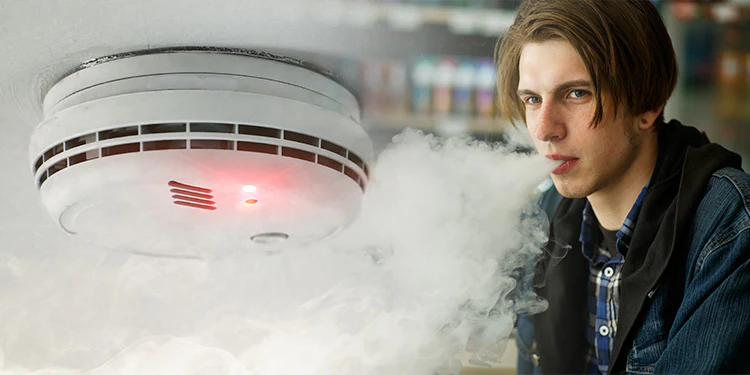
Respect Hotel Rules
For vapers, respecting hotel rules is essential. Before booking, it's advisable to check the hotel's policy on vaping. If uncertain, contacting the hotel directly can clarify any doubts. Adhering to established guidelines not only helps prevent conflicts but also fosters a positive relationship between vapers and hotel staff. Remember, visibility and consideration for other guests can go a long way in creating a harmonious environment.
Minimizing the Impact
When vaping in permissible areas, there are several ways to minimize its impact. Using discreet devices with lower vapor production can help reduce noticeable odors. Additionally, opting for e-liquids with milder scents can lessen any lingering effects. Opening windows for better ventilation and ensuring all vapor is directed away from smoke detectors can further prevent issues. These small acts can significantly improve overall experiences for both vapers and non-vapers.
Consider Fellow Guests
Vaping should never compromise another guest's comfort. Before indulging, consider the impact on nearby rooms and communal areas. If a designated vaping area non smoking room is available, utilizing it shows respect for those who may be sensitive to vapor or opposed to vaping. Furthermore, engaging in conversations with fellow guests and understanding their perspectives can promote mutual respect and understanding within hotel environments.
The Future of Vaping in Hospitality
Emerging Technologies
Vaping technology is advancing rapidly, with newer devices focusing on reducing vapor output and odor. These innovations could reshape how hotels approach vaping, potentially easing restrictions as devices become less intrusive. In parallel, hotels are exploring new air purification technologies to maintain superior air quality, which may facilitate more relaxed vaping policies.
Changing Attitudes
Shifts in societal attitudes towards vaping could influence hotel policies. With more people recognizing vaping as a legitimate alternative to smoking, there's potential for greater acceptance in public spaces. Hotel management, keen to cater to evolving guest preferences, may adapt their policies over time. Engaging with both vapers and non-vapers can provide valuable insights, allowing hotels to make well-informed decisions that balance the needs of all guests.
Collaborative Solutions
Collaboration between the vaping community and hoteliers can lead to more informed policies that accommodate all parties. By sharing feedback and experiences, both groups can work towards solutions that address common concerns. Educational campaigns highlighting vaping etiquette and its impact on shared spaces can further promote a balanced approach, ensuring respectful coexistence in hospitality environments.
Conclusion
Navigating the world of vaping in hotel settings requires understanding, respect, and communication. By familiarizing themselves with hotel policies and adhering to best practices, travelers and vapers can ensure their hobby doesn't infringe on others' experiences. For hotel owners, staying informed about emerging trends and technologies will be key to adapting policies that suit their guests' evolving needs. Respectful coexistence between vapers and non-vapers is paramount, and fostering open dialogue will pave the way for harmonious stays where everyone feels considered. If you've had experiences vaping in hotels, share your stories and thoughts with us—we'd love to hear from you!
FAQs About Vaping in Hotel Rooms
Can I vape in a non-smoking hotel room?
Yes, you can vape in a non-smoking hotel room if the hotel allows it and you follow their policies. It's always best to check with the hotel beforehand to avoid any misunderstandings or potential conflict.
Can I use my own vaping device or should I only use disposable ones?
You can use your own vaping device as long as it complies with the hotel's policies and regulations. Disposable devices may be more convenient for short stays, but using your own device can provide a better vaping experience.
Are there any specific rules or etiquette I should follow when vaping in a hotel?
It's always important to be respectful of others, so make sure to always ask for permission quit smoking and adhere to any designated vaping areas. Additionally, be mindful of the scent and smoke produced by your device and try to minimize any potential disturbance to other guests.
Are there any potential risks associated with vaping in a hotel room?
Vaping indoors can potentially cause damage to furniture and leave behind lingering scents. It's important to use caution and be mindful of your surroundings when vaping in a hotel room. Additionally, make sure to properly dispose of any waste and follow safety guidelines for handling electronic devices.
Can I request a smoking room if I plan on vaping?
Some hotels may offer designated smoking rooms where you can vape, but it's always best to confirm this with the hotel before booking. Keep in mind that even if a hotel allows vaping, it may not be permitted in all areas of the room, such as near fire alarms or sensitive smoke detectors.
Featured Articles

Vape Legal and Regulatory Weekly Report - September 14, 2024
2024-09-14
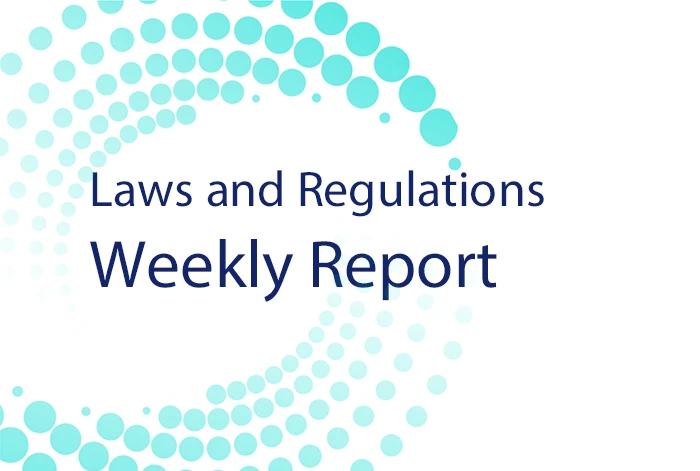
Vape Legal and Regulatory Weekly Report - September 9, 2024
2024-09-09

Vape Legal and Regulatory Weekly Report - September 2, 2024
2024-09-02
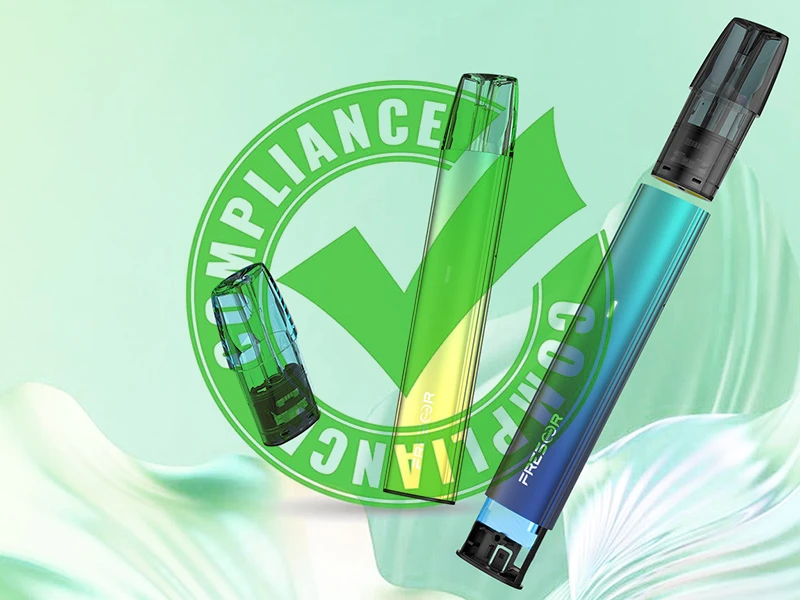
Vaping Laws in Germany: An Update on What You Need to Know
2024-08-12
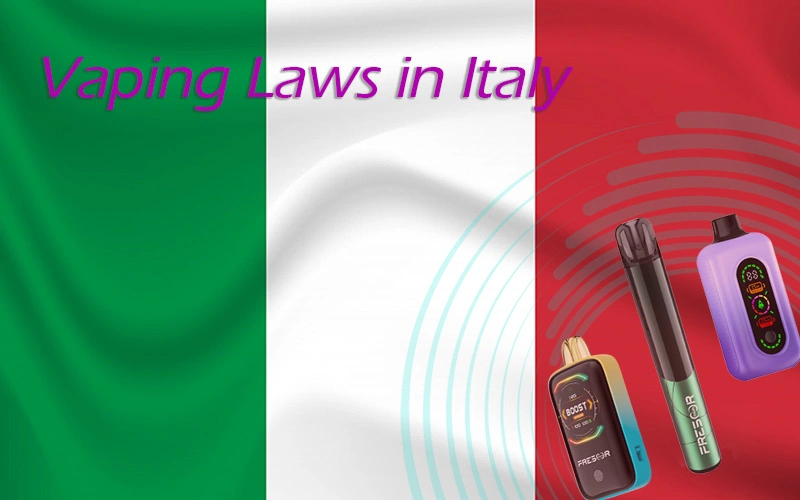
Vaping Laws in Italy: All You Need To Know
2024-08-12

